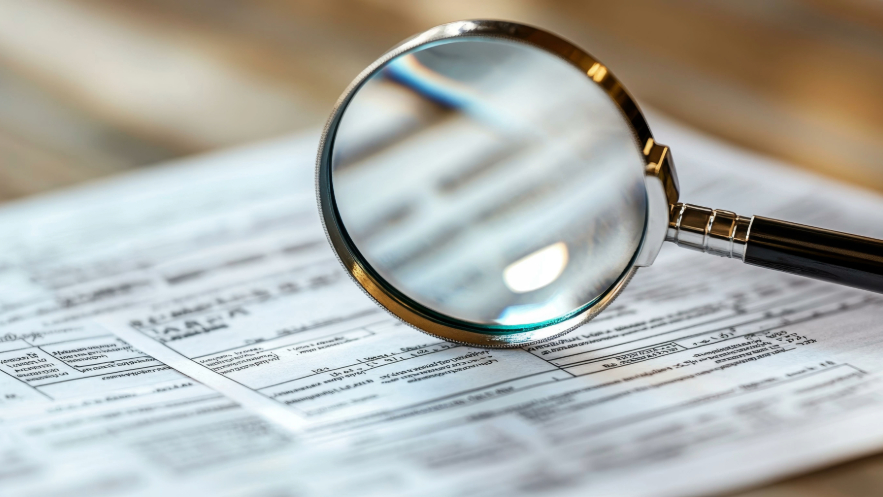Late invoices — they’re a fact of life in accounting. Whether caused by a vendor’s slow processing or misplaced paperwork, these delays can wreak havoc on financial records, especially in prepaid and accrual accounting. When invoices arrive after the expected period, they introduce inaccuracies that disrupt financial reporting, compliance, and decision-making. No accountant enjoys scrambling to fix errors after the books are closed, but with a proactive approach and the right tools, you can minimize the impact of late invoices and maintain accurate financial statements.
Here’s how late invoices affect prepaid and accrual accounting and what accountants can do to mitigate these risks, both manually and through automation.
Why late invoices are a persistent challenge
Despite advances in digital invoicing and vendor management, late invoices remain a frequent issue. Whether due to vendor delays, miscommunication, or internal approval bottlenecks, invoices often slip through the cracks. Unfortunately, these delays can result in misstatements that affect the accuracy of financial reporting.
The impact of late invoices on prepaid and accrual accounting
Both prepaid and accrual accounting rely heavily on timely information. When invoices are late, inaccuracies in prepaid and accrual accounting can lead to:
- Misstated Financials: Late invoices can distort expense recognition, overstating profits or understating liabilities.
- Compliance Issues: Failure to adjust entries can raise audit concerns and result in non-compliance with GAAP or IFRS standards.
- Poor Decision-Making: Inaccurate financial data can lead to misguided business decisions that impact budgeting and forecasting.
Though late invoices are impactful on both prepaids and accruals, they affect prepaid and accrual accounting differently.
Prepaid accounting: Timing and accuracy at risk
Prepaid expenses occur when a company pays for services or goods in advance and amortizes the cost over the service period. The impact of a delayed invoice can vary depending on how late the invoice is and whether other processes were delayed or interrupted. Possible impacts are:
- Incorrect Timing of Prepaid Recognition: A delayed invoice may lead to an overstatement of the prepaid balance if the expense was not accounted for when services or period of benefit began.
- Incorrect Amount of Prepaid Recognition: If the invoice amount differs from your initial recording, you’ll need to adjust the prepaid balance.
- Disrupted Amortization Schedules: If the invoice delays payment, or if an invoice arrives after the prepaid period has been partially or fully amortized, adjustments may be needed to align the prepaid balance with the actual expense.
Manual Solution: If an anticipated invoice is late, record an accrual for the expected amount. Upon invoice arrival, reverse the accrual and create a prepaid for the remaining benefit period, if needed. If the invoice amount varies from the accrual, perform a reconciliation and book a catch-up entry to match the invoice.
Accrual accounting: Greater risks and potential misstatements
Accrual accounting requires recognizing expenses when they are incurred, regardless of invoice receipt. Late invoices create greater risks in this context:
- Failure to Accrue Due to Late Invoice: When no accrual is recorded due to a missing invoice, the expense remains understated. When the invoice finally arrives, you’ll have to scramble to correct previous periods, adding extra work and potential errors.
- Understated Expenses & Inflated Profits: If you don’t accrue an expense, particularly a material one, your profit looks artificially high.
- Inaccurate Financial Reporting: The timing of expense recognition is crucial for accurate financial statements. Late invoices can cause a delay in the recognition of liabilities, which can greatly impact the accuracy of financial statements.
Manual Solution: When an invoice arrives late, make adjusting journal entries to correct prior period accruals (or the lack thereof). If the invoice is higher than the prior accrual, increase the expense and adjust the liability. If the invoice is lower than the prior accrual, reverse the excess accrual to avoid overstating expenses. If the expense is immaterial, simply record the expense in the current period.
Automate and streamline with FinQuery Prepaid and Accrual Accounting
While there are manual solutions to late invoices, these processes can be time-consuming and prone to error, especially for accounting teams managing high volumes of invoices. FinQuery Prepaid and Accrual Accounting automates these processes, reducing the effort spent on prepaids and accruals by up to 80%.
How FinQuery solves late invoice challenges
- Streamlined Invoice or Contract Entry: Automate invoice and contract abstraction to reduce delays and errors.
- Contract Management Integration: Link contract data to your prepaid and accrual schedules, ensuring accuracy by helping you see when invoice amounts or timing do not match what is in the contract.
- Automated Amortization and Accruals: Automatically calculate and adjust amortization schedules and accrual entries based on contract or invoice data.
- Automated Adjusting Entries: Catch-up capabilities automate and simplify the process of correcting entries when late invoices arrive.
- Audit and Compliance Assurance: Consistent expense recognition with detailed audit trails, including any changes or adjustments made.
Stay ahead of late invoice risks
Late invoices may be a fact of life for accounting teams, but they don’t have to be a source of stress. By understanding their impact and implementing effective strategies – both manual and automated – you can maintain accurate financial records and ensure smooth accounting operations. Investing in an automated solution like FinQuery Prepaid and Accrual Accounting can maintain accuracy, reduce manual workload, free up time, and ensure compliance, even when invoices are delayed.
Ready to transform how your accounting team manages prepaids and accruals? Explore FinQuery Prepaid and Accrual Accounting today.





